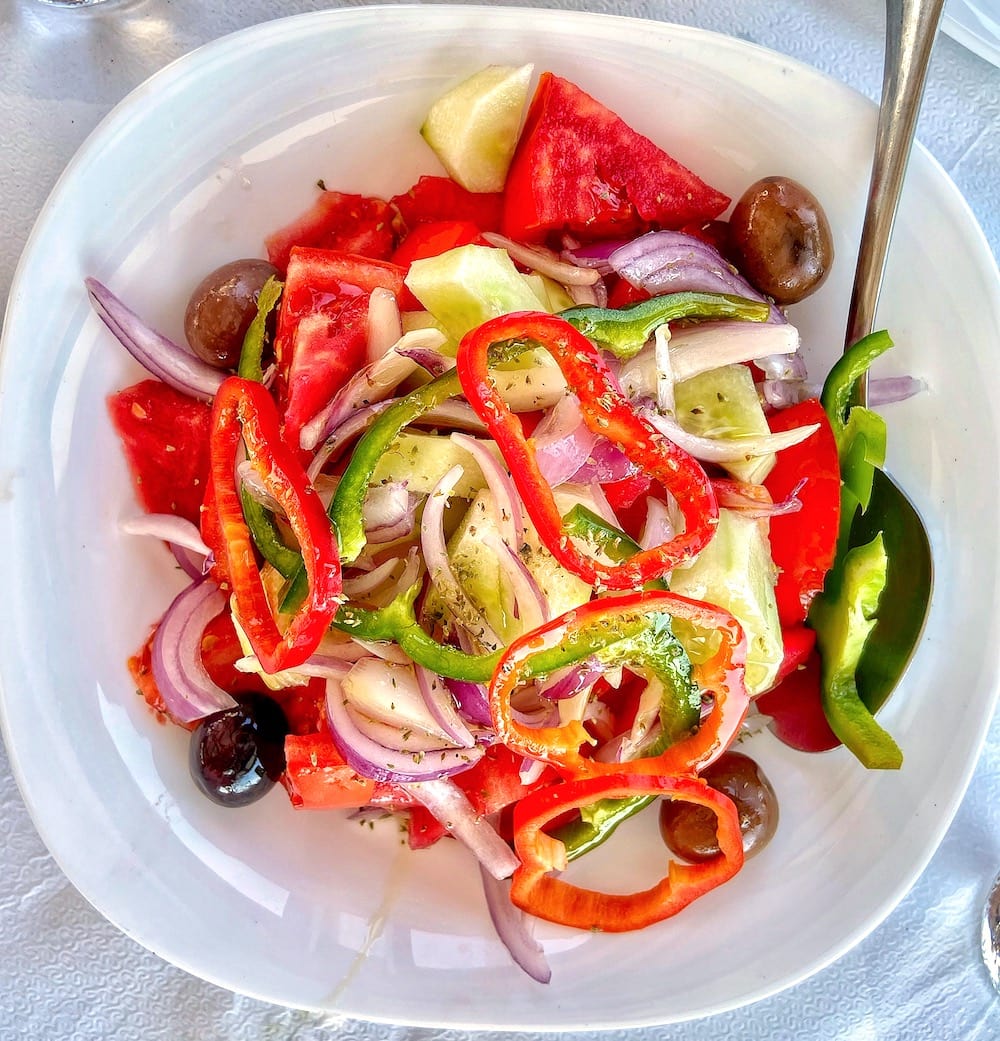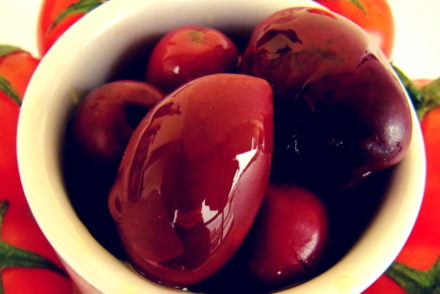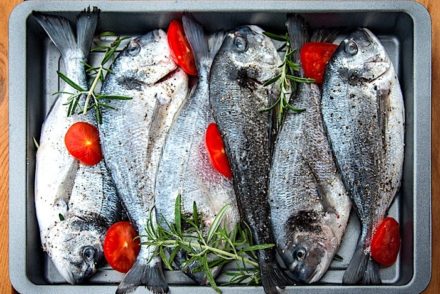We know that the Mediterranean diet offers protection from chronic diseases such as heart disease, cancer and diabetes. But what if you are overweight?
October 16th, 2020

Well, even if you are overweight following a Mediterranean diet will protect you according to new research, and even more so! Swedish researchers from Uppsala University followed 79,000 people over a period of 20 years and looked at the relationship between weight, the Mediterranean diet and risk of death.
What they found may surprise you: Individuals who were in the overweight category who had a high adherence to a Mediterranean diet had the lowest risk of death.
Normal weight individuals who did not follow a Mediterranean diet had a higher risk of death than individuals in any other weight category who did follow a Mediterranean diet.
What this study tells us is that it truly is important that we eat well and not only focus on weight loss and calories. It is one of the reasons I do not include calories for many of my recipes here, because I want to focus on the quality of the food we eat, rather than just on how many calories a dish has. Having said that, weight is an important factor for our health, particularly how much weight we gain as we grow older, but it is not the only thing.
Realistic Weight Goals + 3 Easy Healthy Eating Tips
It is understandable that we may want to maintain or lose weight for health reasons, but also for own well-being and self-esteem. We may feel lighter at a certain weight, or our clothes fit better and that is fine. It’s OK to want to change your weight, as long as the you go about it eating food that is good for you. That way you can lose weight without harming your health.
Luckily the Mediterranean diet has a lot of research supporting it as an excellent weight loss diet which also happens to protect you from various diseases as well and this can’t be said for most diets out there that can be harmful to your health and land you in a vicious cycle of dieting.
If you want to lose weight, focus first on eating a better quality diet and then on weight loss. Once you start eating better (more produce, less processed foods) you will have better control of your blood sugar and as a result better control of your appetite. I suggest the following small changes:
- Reduce you consumption of processed foods, avoid snack foods such as crackers, chips, cookies, cereal bars.
- Focus on eating a vegetable based meal once a day
- Reduce consumption of caloric beverages. Make water your main beverage.
References
Combined associations of body mass index and adherence to a Mediterranean-like diet with all-cause and cardiovascular mortality: A cohort study. PLOS Medicine, 2020.
Weight gain as a risk factor for clinical diabetes mellitus in women. Ann Intern Med, 1995. 122(7): p. 481-6.
Body size and fat distribution as predictors of coronary heart disease among middle-aged and older US men. Am J Epidemiol, 1995. 141(12): p. 1117-27.





20 Comments
What are your thoughts on protein. As a post-menopausal woman, I am finding that I need more protein to maintain my weight. Thank you!
It is rare for someone to not meet their protein needs. The Mediterranean diet offers adequate protein for postmenopause, if you want to increase your protein it is recommended to do it through plant protein sources (beans, nuts etc) and seafood.
I love your cookbook and recipes, however, being post-menopausal I find that I really have to increase my protein intake to get all the way down to my best weight. I can maintain on a Mediterranean diet but losing weight is another thing. How do post-menopausal women do on this diet? Any recommendations? Thank you!
Hi Brenda, Actually the Mediterranean diet as is, is considered an ideal diet for post-menopausal women. A recent study had showed that postmenopausal women who adhered to a Mediterranean diet were reported to have higher bone mass and muscle mass. Adjusting your calories will help you lose weight as well.
Thank you! Yes, I agree it is do-able but I am certainly having to be more mindful of exactly what I am eating not only calorie-wise but also protein AND carb-wise. I am confused by some of the nutrient listings in your recipes in the book. For instance, the chickpeas and rice on page 87 lists 21g of protein per serving and the recipe is for 2 servings. 3/4 of dry chickpeas is 9 grams protein, 1 T. tahini is 3 grams & 3/4 c. rice is 13 grams of protein. The total protein (unless I missed something) is 25 grams and that has to be divided in 2 for each serving so that is only 13.5 grams per serving. I know this is only 1 recipe but, unless I personally make a real effort, I find that plant-based diets can pack on the pounds as much as any diet lol. Thank you again!
Hi Brenda, The nutrition analysis of the recipe is correct. Please note that the ingredients are dry not cooked.
A subject that nobody mentions: stress incontinence. I am still very overweight, but losing weight over the last year has almost completely eliminated this problem for me. I know plenty of thin women have the problem. I even read that weight loss was unlikely to help, so imagine my surprise when I noticed I was dry. What a gift! I know it is not life threatening, but it certainly is demoralizing.
Happy to hear that! Yes weight loss, change of diet and exercise can help
Thank you!
Thanks for shedding light on how easy, approachable, and delicious the Mediterranean diet truly is! It’s what I recommend to all my clients as well as it’s a non-restrictive and holistic way to eat and live.
Hi and thanks for your ongoing great advice!! I lived in Greece briefly in college anbd the thing I mioss most is the hard bread (Crete) rusks. They were barley I think, hard as cement but oh so good topped with chopped tomato and olive oil for breakfast. I am avoiding most wheat but these did not bother me gutwise at all.. WHERE can I get some? Or recipe?? I live on Atlanta and the only greek style bakery I went to to seek these they never heard of it!! Is this called Paxmadi?? Much thanks!
I Susan, I have a recipe for Barley Paximadia here: https://www.olivetomato.com/greek-barley-rusks/
You can also order online:
Thanks for this good advice. I like your site and your recipes. Can you please send me any daily meal plan for a week just as a starter so that I will know how to combine the meals. I am 54 and high BMI (32).Thank you in advance.
Hi Biljana, You can find meal plans here: https://www.olivetomato.com/complete-guide-authentic-mediterranean-diet/
Thank you so much for your advice. I like your site and your recipes. Can you send me any weekly meal plan just as a starter,because I can’t manage to loose weight. I’m 54 and high BMI (32),
OK. I found it. Thank you
Glad you found it
I converted to Mediterranean eating style using the above 3 points you have listed and using your recipes. Thank you! My family and I are eating more unprocessed food, simpler meals and my food bill has decreased. I have rediscovered my kitchen and now take pleasure in cooking, baking and preserving food from fresh ingredients rather than supermarket package food. Less red meat more fish and more veg based dinners. We now have a vegetable garden established to support our food lifestyle change and loving it. I am from Australia and Greece is now on my bucket list of places I want to spend time when COVID is no longer a threat A big tank you again for your site and the effort you put into it ur passion is evident.
Hi Jenny, Thank you so much! Thank you for sharing your experience. I’m jealous of that garden!
This is less formal than Mark Bittman’s book, something like Vegan until 6pm (and in many Mediterranean countries the main meal would be at midday, early in the afternoon), but the same idea of greatly reducing but not entirely eliminating animal foods.
Is this true even for the severely overweight? I’d think the resulting lack of mobility (walking, cycling, gardening etc) would be very detrimental to life expectancy.
According to the researchers: “Obese individuals with high adherence to a Mediterranean-type diet did not experience the increased overall mortality otherwise associated with high BMI, although higher CVD mortality remained.”